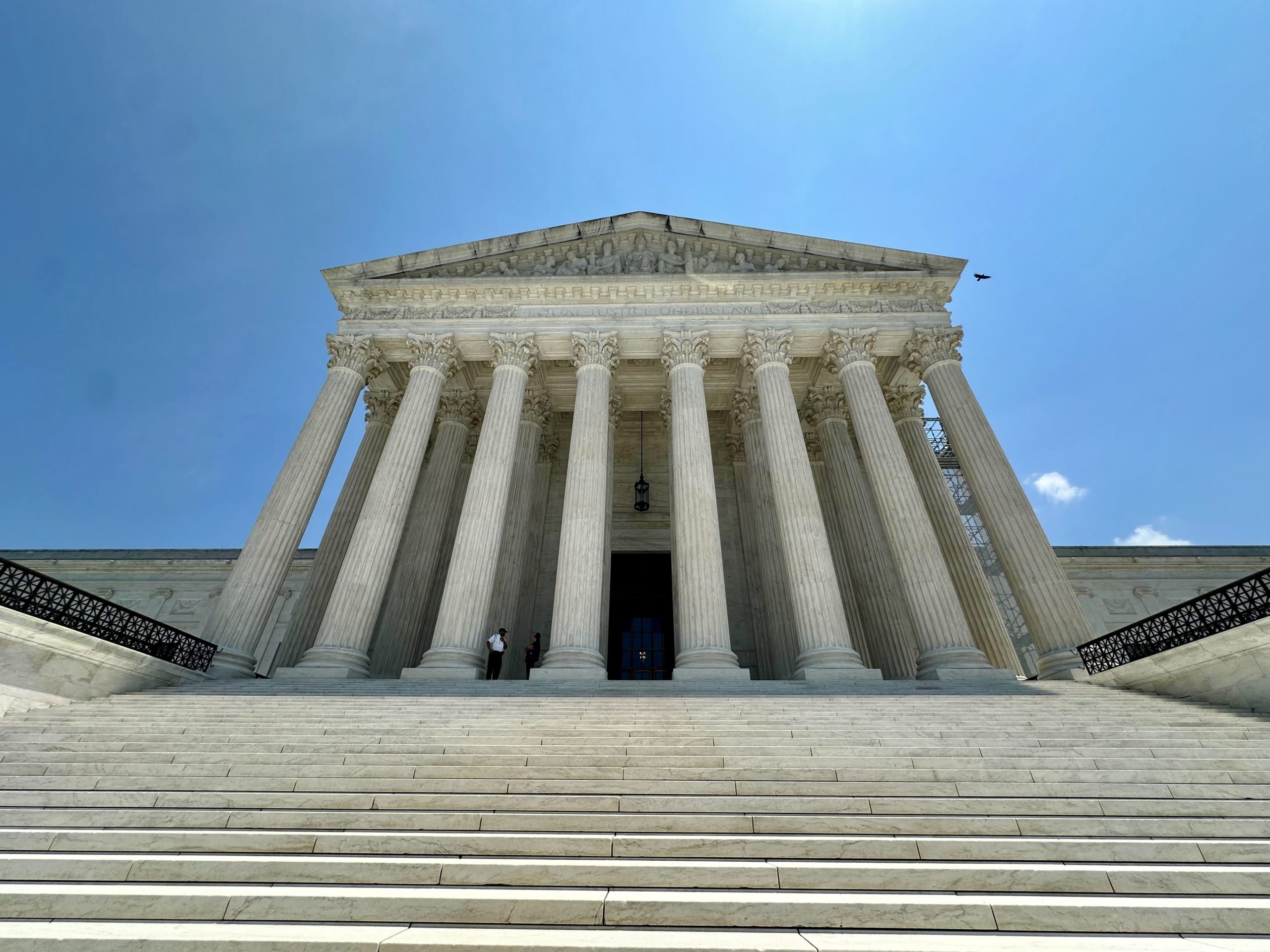ARGUMENT ANALYSIS
on Jan 13, 2025
at 4:35 pm

The court heard Stanley v. City of Sanford, Fla. on Monday. (Katie Barlow)
The Supreme Court on Monday appeared sympathetic to a retired Florida firefighter who is seeking to sue her former employer under the Americans with Disabilities Act. Karyn Stanley, who worked for the fire department in Sanford, Fla., for two decades before Parkinson’s disease forced her to retire at the age of 47, contends that the city violated the law when it changed its policy for subsidizing health insurance for retirees, leaving her to bear the entire cost of her health insurance for 15 years. But some justices questioned whether Stanley’s best argument was one that they could consider at all, while at least two justices – Neil Gorsuch and Amy Coney Barrett – remained silent, making it difficult to predict how they will vote.
A federal appeals court in Atlanta ruled that Stanley could not bring her claim under the Americans with Disabilities Act because she did not work for the city when her retirement benefits were terminated.
Stanley’s lawyer, Deepak Gupta, on Monday urged the justices to reverse that ruling. He told the justices that Stanley had “at least two paths†to victory. The “narrow path,†he argued, is to rule that Stanley can sue because she is alleging that she was the victim of discrimination while she was still employed by the city: She began working for the fire department in 1999, the city changed its policy on the subsidies in 2003, she was diagnosed with Parkinson’s disease in 2016, and she was forced to retire in 2018. From 2016 to 2018, Gupta explained, Stanley “was subject to a policy that she alleges reduced her compensation in a discriminatory manner.â€
Frederick Liu, an assistant to the U.S. solicitor general who argued as a “friend of the court†on behalf of the Biden administration, echoed this argument. He told the justices that “the most straightforward path†for Stanley’s lawsuit to proceed “lies in the period after she was diagnosed with Parkinson’s disease but before she retired.â€Â
Stanley’s second and “broader†path to victory, Gupta added, would be for the court to hold that “former employees may challenge post-employment discrimination.†Otherwise, he emphasized, “the ADA’s protection for these benefits†would “mean the least when they matter the most.â€
Jessica Conner, who represented the city, urged the justices to focus on the broader question and to leave the 11th Circuit’s decision in place. The court of appeals was correct, she said, when it held that Stanley’s claim could not go forward because she could not show that the city discriminated against her “while she could perform the essential functions of a job that she held or desired to hold.â€
Justice Clarence Thomas was the first to raise the question whether the lower courts had weighed in on Stanley’s narrower argument. Gupta explained that although the court of appeals had not decided that question, Stanley had made the argument there.
Justice Elena Kagan observed that the justices had originally granted review to decide only the broader question that Gupta discussed. “I’m not sure we had†the narrower theory “in our minds when we took the case,†she told Liu.
But Kagan later seemed more open to considering the narrower theory. In an exchange with Conner, she indicated that Stanley had indeed raised the argument in the lower courts. And it “seems a bit odd,†Kagan suggested, to “decide the bigger, broader question†when it is purely an “academic†one for Stanley’s case, which could be resolved on the narrower ground.
Justice Samuel Alito had a different concern. Under the city’s policy, he observed, Stanley is treated more favorably than someone who retires after 20 years without a disability (and therefore would not receive any subsidy for health insurance, while Stanley received it for two years), but less favorably than someone who retires after 25 years (and therefore would receive a subsidy until she turned 65). How, he asked, are courts supposed to decide these questions under the ADA? “I want to know,†he continued, “where we’re going with this.â€
Justice Ketanji Brown Jackson countered that Alito’s questions went to the merits of a discrimination claim under the ADA. But she and Kagan worried aloud that under the city’s rule, retirees would never be able to sue while they were still working to challenge discrimination relating to “a retirement benefit that’s going to kick in when I’m no longer working.â€
Gupta reiterated this point in his rebuttal, telling the justices that although the “city concedes that the ADA protects retirement benefits,†it “offers no coherent account of how that protection could be vindicated,†and its “extreme position creates perverse incentives for employers to hide discrimination until after retirement.â€
A decision in the case is expected by summer. Â
This article was originally published at Howe on the Court.Â





